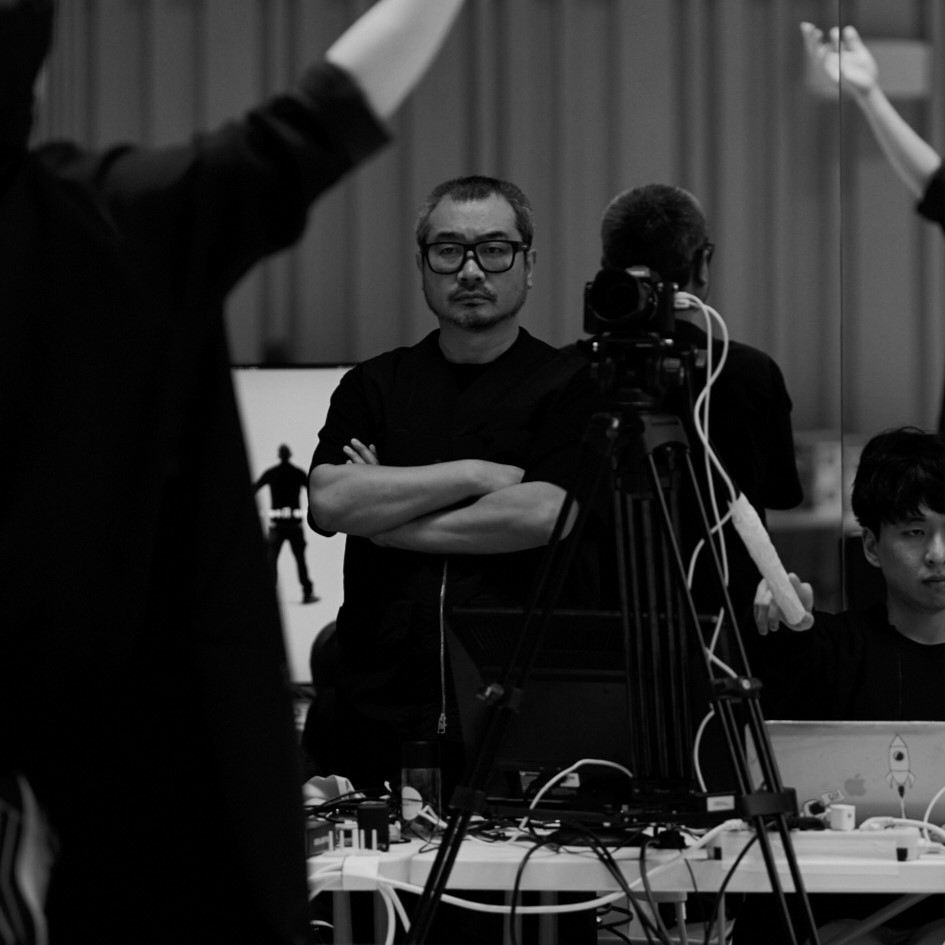 |
Yang Jung-ung is seen at the rehearsal for "Faust" (LG Art Center, Sem Company) |
For South Korean director Yang Jung-ung, founder and director of theater company Yohangza, it was natural for him to return with yet another classic play.
Known for reinterpreting classics with a modern touch, Yang has directed many Western classics, including Shakespeare’s “Coriolanus” and “Hamlet” and Ibsen’s “Peer Gynt.”
This time, Yang draws on “Faust” the classic play written 250 years ago by Johann Wolfgang von Goethe. The play stars veteran actor Yu In-chon as the older Faust, Park Hae-soo as Mephisto, Park Eun-seok as the younger Faust and Won Jin-a as Gretchen.
“Classics contain timeless wisdom about life and how to live a life,” said Yang during an interview with The Korea Herald on Friday.
“Writers like Goethe would have read a lot -- not only literature but also philosophy, law and religion. They are like a ‘super computer’ in today’s view. And all the enlightenment was put into their books.”
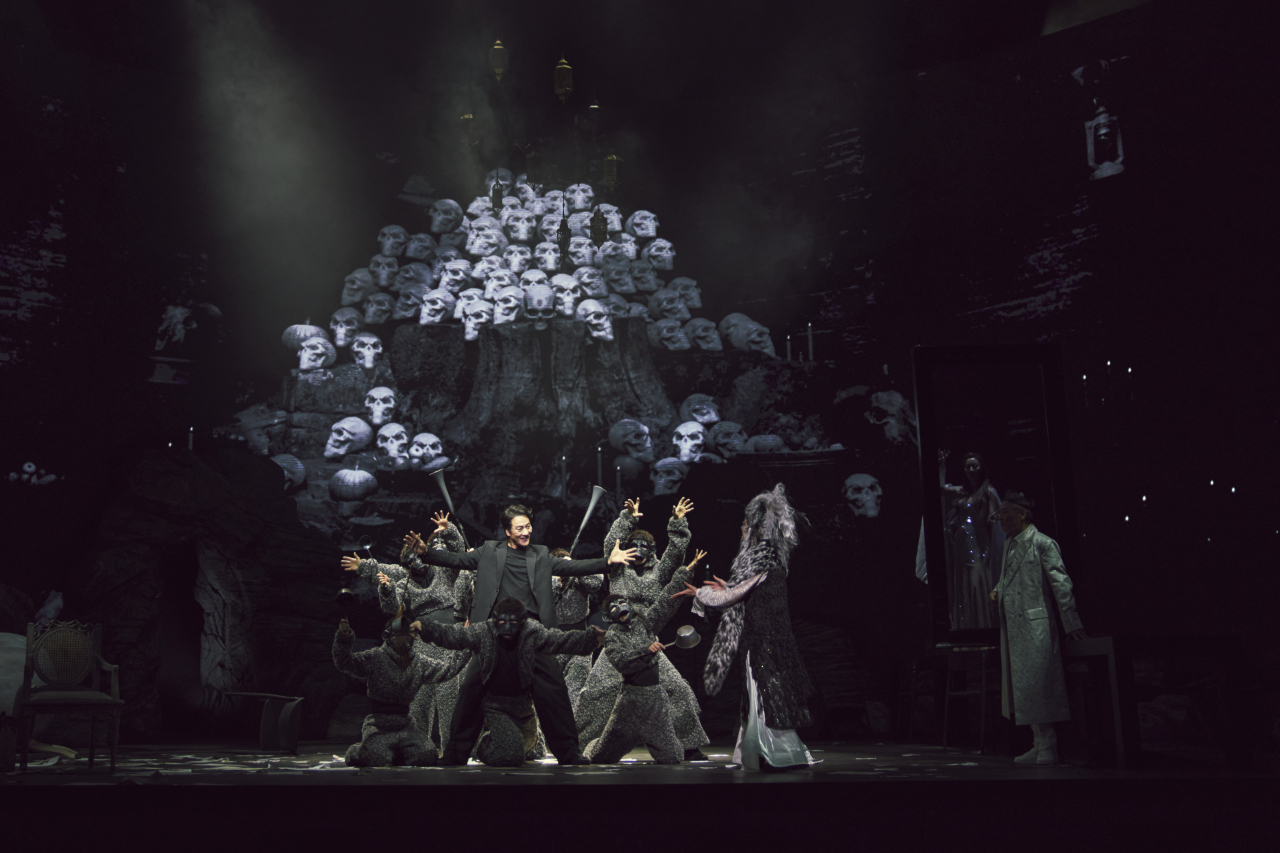 |
Scenes from "Faust" (LG Art Center, Sem Company) |
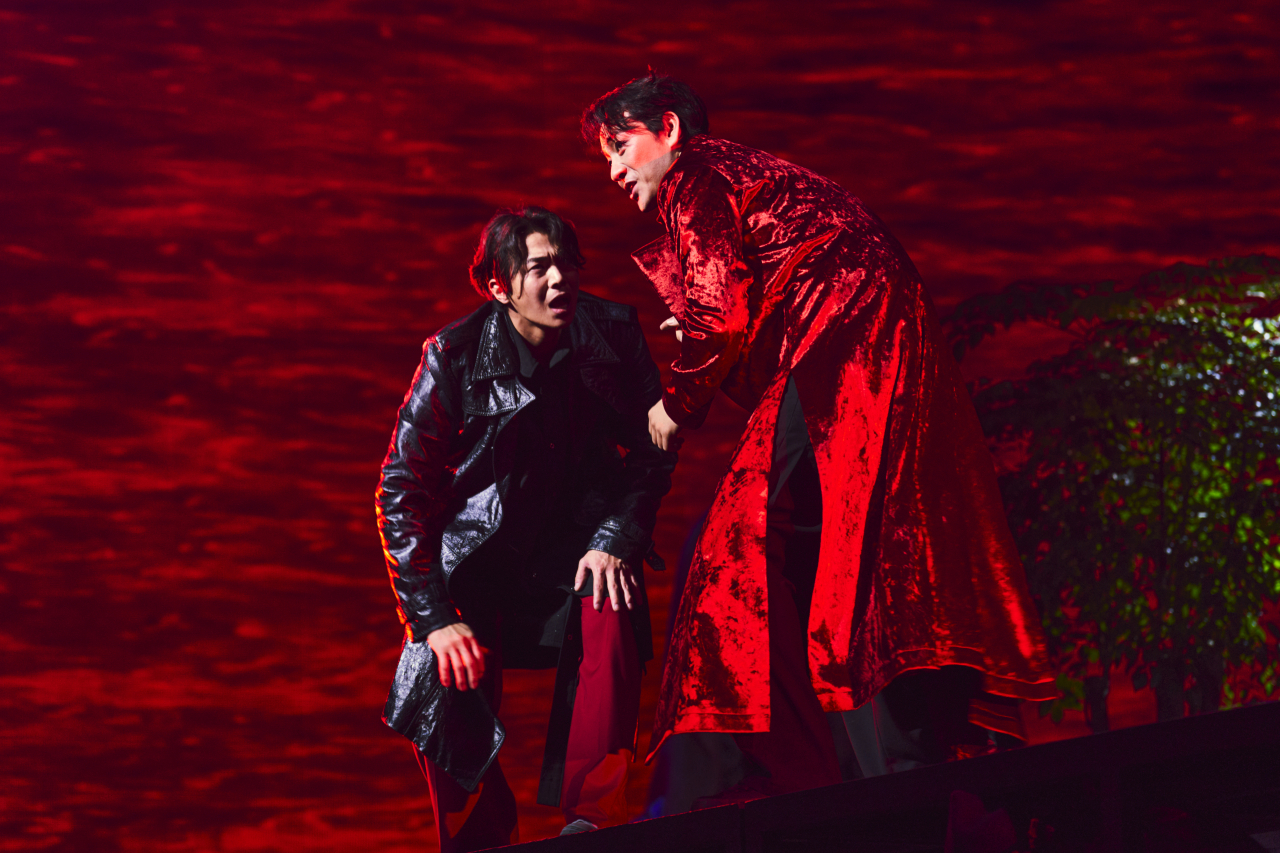 |
Scenes from "Faust" (LG Art Center, Sem Company) |
This is why Yang hopes “Faust” audiences will read the book itself after watching the show. The book is challenging for the uninitiated to read, but with actors speaking the text in lines and visualizing it on stage, the play makes it much easier to appreciate the book.
It took three months to work on the script and shorten it to 165 minutes, focusing on faithfully reflecting the literary beauty of the original text as much as possible.
Just as Faust says in the line “I yearn … (to) translate the sacred original into my beloved German,” Yang focused on translating the book into a stage language.
“I spent a lot of time finding out what parts Goethe would have emphasized, like putting together a puzzle for each scene. (The process) was like panning for gold in the sand,” Yang said, adding that there would still be more treasures hidden in the book.
But why did Yang decide to adapt the play this time, out of all the books on his wish list?
Yang said it was precisely the right time to stage Goethe’s exploration of human desires and good and evil, because what the German writer had questioned then is still valid today.
“We tend to sympathize with Mephisto more than Faust. Surprisingly, Goethe saw it, too -- how human beings are vulnerable to worldly desires, how we cannot tell the fine line between good and evil. It comes as a self-portrait,” said Yang.
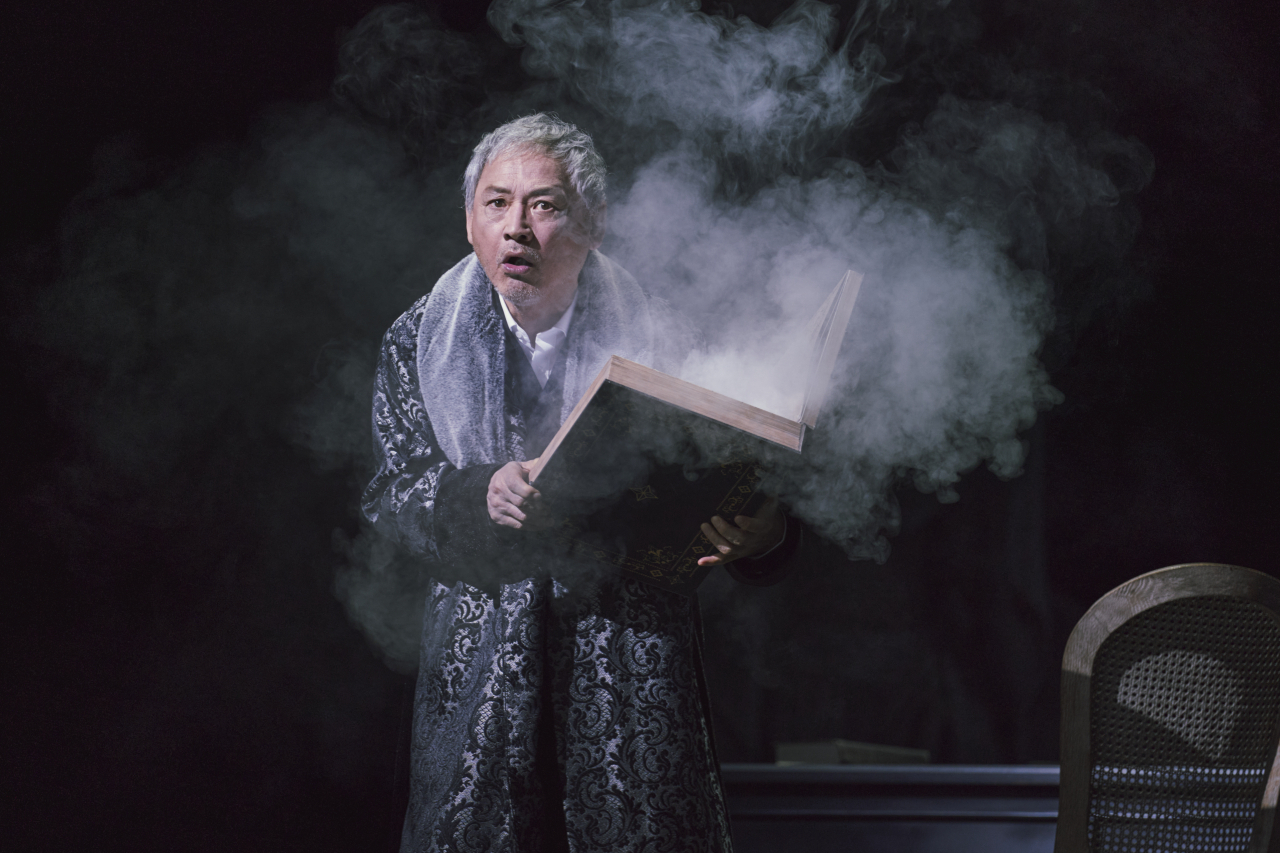 |
Scenes from "Faust" (LG Art Center, Sem Company) |
Yang has gone beyond conventional plays in the past, directing operas, ballet musical “Simcheong,” and the multimedia-infused opening and closing ceremonies for the PyeongChang Winter Olympics.
These multimedia skills are on show again in "Faust." While Yang adapted the play to faithfully to reflect the literary beauty, he added modern touches visually by incorporating a massive LED screen -- 8 meters high and 28 meters wide -- as the backdrop.
“The motif of contrast between light and dark, good and evil, continues throughout the play,” said Yang. “To reflect this metaphorically into the stage design, we used an LED panel. It is made up of a myriad of individual dots, and each dot emits light. The panel as a whole encompasses a vast universe of light.”
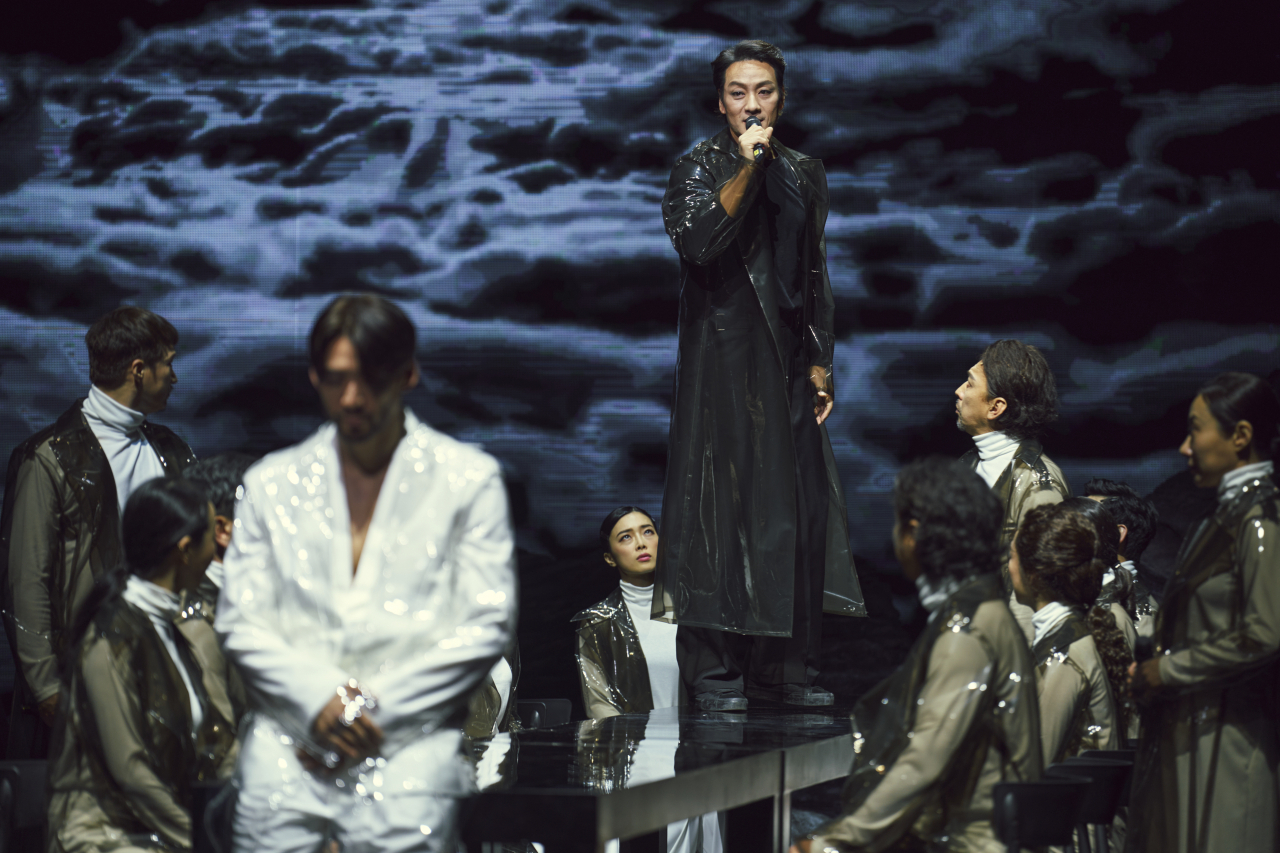 |
Scenes from "Faust" (LG Art Center, Sem Company) |
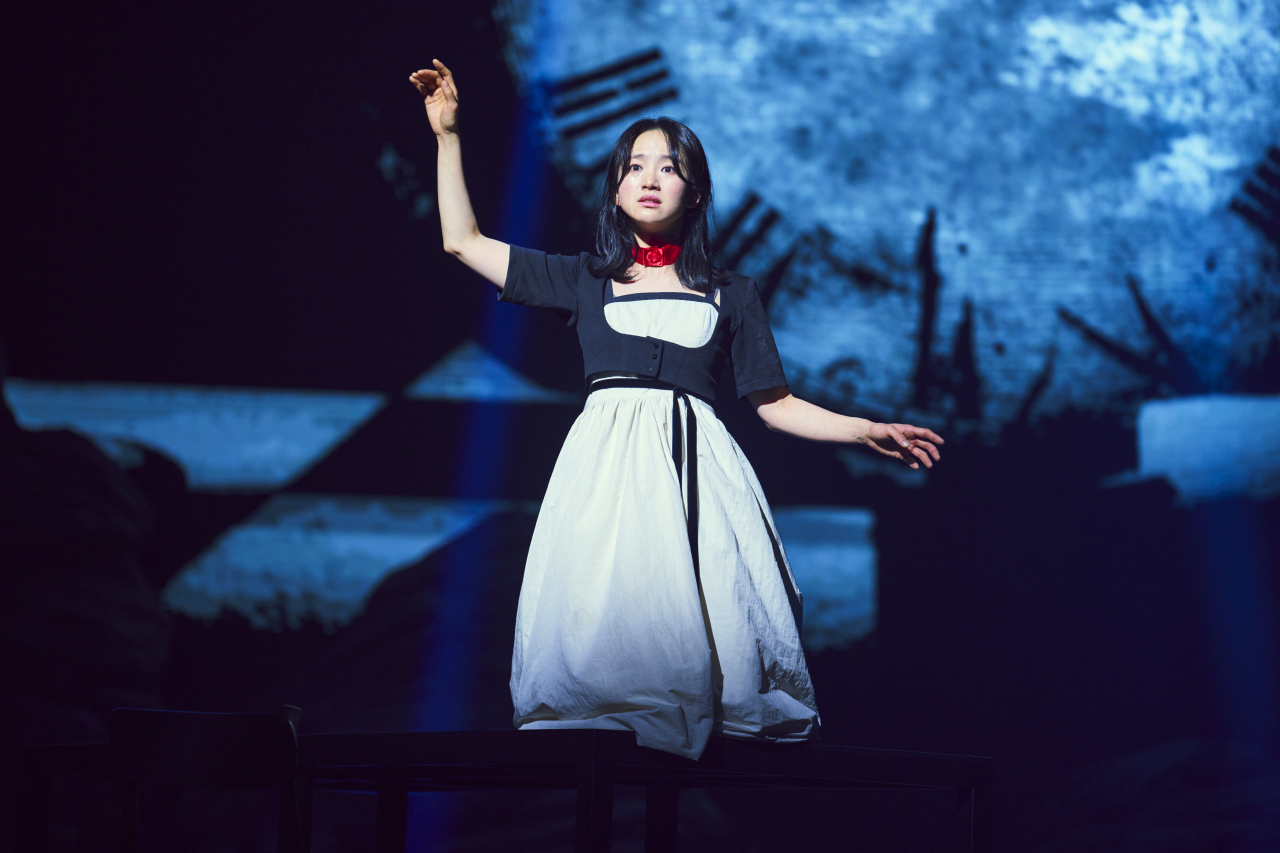 |
Scenes from "Faust" (LG Art Center, Sem Company) |
The screen changes 26 times from Heaven, village, garden to library to vividly portray each setting. Gretchen’s room, which is set up behind the stage, is shown on the screen, creating a two-way communication where Gretchen on the screen and the young Faust on the stage interact as if they were on a video call.
“Despite the theater being analog, we wanted something digital to connect with the contemporary audience,” said Yang. “If ('Faust') was set in modern times, Gretchen would be a young millennial or a Gen Z,” said Yang with a laugh.
Yang’s “Faust” has only taken its first step, as this performance covers “Faust, Part One.” Yang expressed hopes for adapting the second part into a play as well, with the original cast.
“Seeing that dramas and movies are also made seasonally, I think doing that for plays would be exciting,” said Yang.
“Faust” runs at LG Art Center, western Seoul, until April 29.






![[Today’s K-pop] Blackpink’s Jennie, Lisa invited to Coachella as solo acts](http://res.heraldm.com/phpwas/restmb_idxmake.php?idx=644&simg=/content/image/2024/11/21/20241121050099_0.jpg)
